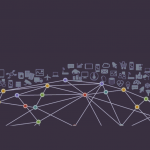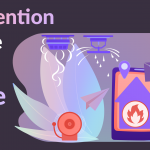Introduction
As the world slowly & steadily shifts towards Industry 4.0, it’s not too difficult to imagine how IoT will be a vital part of that move towards that vision. Being able to build smarter workspaces that automate business processes and improve security. Acting as an intermediary from physical workspaces towards our faltering advance towards building virtual workspaces.

A McKinsey analysis of over 150 use cases estimated that IoT could have an annual economic impact in the $3.9 trillion to $11.1 trillion range by 2025.
So many models projected that, right about now, we would have 50 billion connected devices. Yet we’re only sitting at about 20% of that figure. How did we get it so wrong?
We’re still quite far off from hitting those numbers, but it’s only a matter of time when it inevitably crosses the chasm of being the next big thing to become the new norm or the de facto status. Billions of dollars have already been poured into the system, in hopes of accomplishing that status. Yet we’re still not even halfway there in terms of offering a whole product experience.
The Why?
One very genuine reason for this void is the lack of coordination and cooperation between these visionaries. Everyone wants to be the first and the most dominant player in the market. In hopes of being able to capitalize on the first mover’s advantage, and gain a ton of market early on. This is where everything falls apart. Organizations only see the treasure at the end of the rainbow, they fail to see the length of the chasm in between. One which cannot be traversed alone. In the end, in hopes of making it big, they fail to even make a dent.
Pragmatists buy based on how mature the platform is. Let’s say tomorrow we manage to create a suite of products better, more powerful, and more intuitive than Adobe’s lineup of creative applications. It would still be next to impossible to break through the market segment of professionals that already use Adobe because they have an ecosystem more mature, with a ton of content, millions of guides on youtube, forums, and an established community of collaborators & creators.

The same ideas apply towards IoT, the Industry won’t shift unless there’s a coordinated effort and promise to form a more mature ecosystem with industry standardizations, a common set of protocols, and behaviors. Trust me, Nobody likes being locked into a vendor ecosystem, especially when their whole business’s workflow is dependent on it. Especially if you’re working in the security and access control industry a temporary shutdown can create millions in lost revenue for the customers and a substantially bigger loss of trust with the vendor.
An ideal product’s buying decision should be intuitive, You’re not creating assurance or peace of mind within the buyer when you’re selling proprietary cloud dependant hardware and software, all with a very immature ecosystem. If for any reason your company shutters down or if the servers crash, you suddenly have a lot of angry customers with really expensive paperweights.
We’ve seen this happen multiple times both within the consumer IoT and Building Automation and the story is the same almost all the time. Some big-name companies with a lot of money and power create a new de facto standard, which they call the future of IoT and Technology going forward, forcing smaller vendor companies to create hardware for it. Only for them to abandon ship a couple of years later and act like it never happened. Google Android Things and KNX being prime examples of that.

The Light at the end of Tunnel
Not all is bleak though, As more and more Fortune 500s have failed to cross the chasm and realized that it won’t be possible to create a market unless they join hands to collectively create industry standardizations, and a common set of protocols that power all their future hardware and software; they won’t be able to envision the IIoT 4.0 future anytime soon.
We’re starting to see this transition happen in the Home Automation Industry with the creation of the Zigbee Alliance or the Matter Foundation, albeit there is nothing to say if they still inevitably jump ship a couple of years down the line.
From the beginning, our goal for axess.ai was to make IoT more accessible and available to all. Being able to skip vendor lock-ins altogether and open up the doors to the free market for healthy competition amongst all manufacturers (and not the ones with the deepest pockets) was our utmost priority. Hence being able to push the boundaries for the future of IoT is something we take immense pride in and hope to see this market develop further into something huge.
We realized that hardware and its protocols will be ever-evolving and we will have to be the ones who need to adapt to that, not the consumer. Hence, axess.ai was founded on the principles of; rather than defining industry standards, we will be the ones adapting to the standards and do all the hard work of connecting devices backstage, and you just see the beautiful orchestra of devices working together in perfect harmony in front of you.





